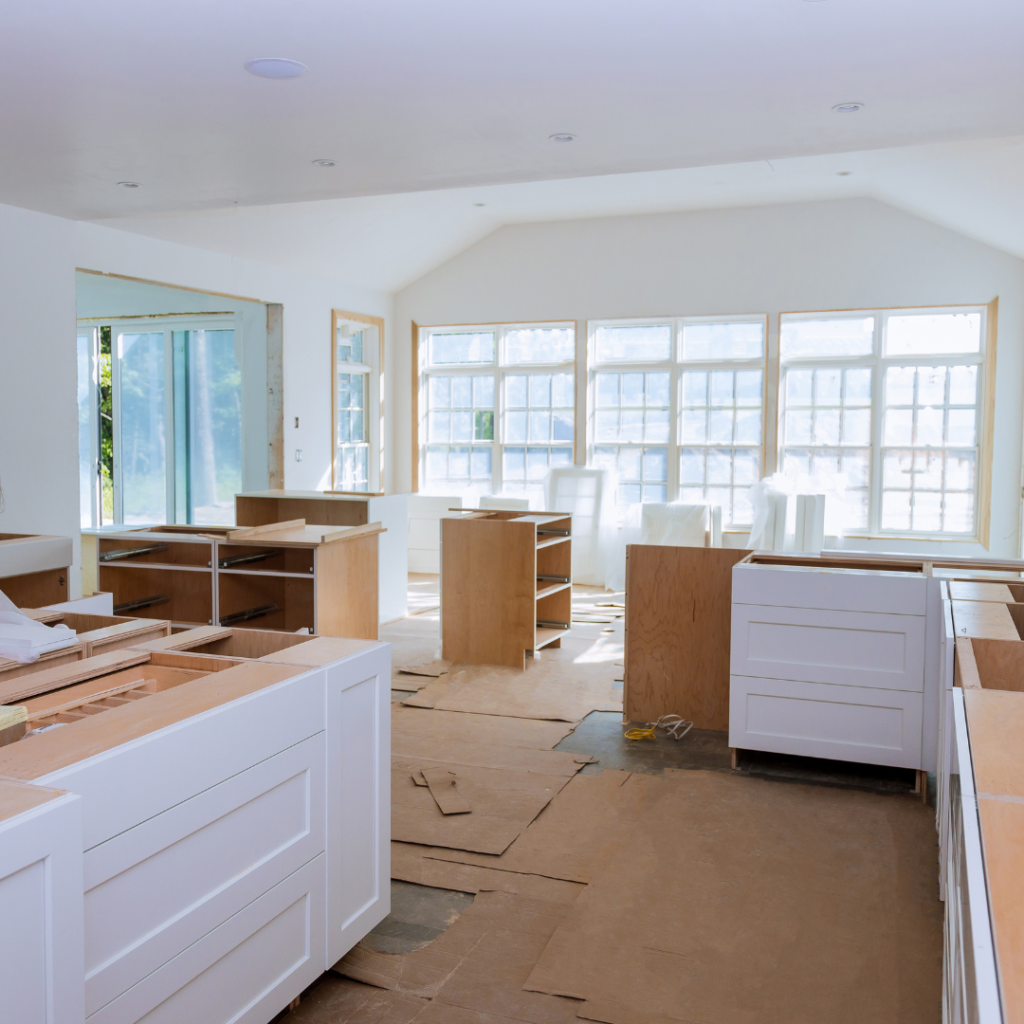Undertaking a home renovation project is an exciting yet daunting task, requiring careful planning, decision-making, and coordination. One of the most crucial decisions homeowners face is determining who to hire for their project, which can significantly impact the outcome of your endeavor. Should you enlist the expertise of an interior designer, an architect, or a contractor? Each professional brings unique skills and perspectives to the table, and understanding their roles can help you make an informed decision. In this blog post, we’ll explore the distinctions between interior designers, architects, and contractors, helping you choose the right professional for your home construction project.
Understanding the Roles: Interior Designer, Architect, and Contractor
Before diving into the specifics of each profession, let’s clarify their roles in the context of a home renovation (or construction) project:
1. Interior Designer:
As your interior designer, we focus on the aesthetics and functionality of interior spaces. We specialize in creating cohesive and visually appealing designs that align with your preferences, lifestyle, and budget. As Interior designers we are skilled in space planning, color theory, furniture selections, lighting design, and material coordination. Our primary goal is to enhance the overall look and feel of a space while ensuring it remains functional and practical.
2. Architect:
Architects are trained professionals who specialize in the design and planning of buildings and structures. They possess a deep understanding of architectural principles, building codes, and construction techniques. Architects work closely with clients to conceptualize and develop architectural plans that meet their needs, preferences, and budget. They are responsible for creating detailed drawings, blueprints, and specifications that guide the construction process from start to finish.
3. Contractor:
Contractors are responsible for executing the construction work outlined in the architectural plans. They oversee the day-to-day operations of the construction site, manage subcontractors and laborers, and ensure that the project stays on schedule and within budget. Contractors are skilled in various construction trades, including carpentry, plumbing, electrical work, and masonry. Their primary focus is on the physical construction of the project, from laying the foundation to installing finishes and fixtures.
When to Hire an Interior Designer
Enhancing Aesthetics and Functionality
An interior designer focuses on the aesthetics and functionality of interior spaces, ensuring that they are both visually appealing and practical. Partnering with an interior designer is an invaluable asset for homeowners looking to enhance the aesthetic appeal and functionality of their interior spaces. Starting with pre-construction design, lighting design, furnishings selections & customization, to designing accent walls, custom built-ins, window treatments and interior styling to putting on the finishing touches and details that truly complete a space.
Here are some scenarios in which hiring an interior designer is recommended:
1. You Want a Cohesive Design Scheme:
If you desire a cohesive and harmonious design scheme that ties together all aspects of your interior space, an interior designer can help bring your vision to life. During the pre-construction phase, your designer will work with you to identify your key goals and help you to clearly communicate that with your architect and/or contractor. Your designer will assist you in the appropriate lighting solutions for your home that will be specifically designed for the way you live. They have a keen eye for color, texture, and proportion, allowing them to create a cohesive design that reflects your personal style and taste.
2. You Need Space Planning Assistance:
Space planning is a crucial aspect of interior design, particularly in smaller or oddly shaped spaces. An interior designer can assess your space and develop a layout that maximizes functionality, flow, and efficiency. They’ll consider factors such as traffic patterns, furniture placement, and ergonomic considerations to ensure your space meets your needs and lifestyle. Space planning allows you to get the most out of every square foot and that everything fits before you spend a penny.
3. You Require Material Coordination and Selection:
Selecting materials and finishes can be overwhelming, with countless options available on the market. An interior designer can help narrow down choices based on your preferences, budget, and project requirements. Your designer will provide stylish and functional finish selections for every surface. Whether you’re choosing paint colors, flooring materials, plumbing selections, wallpaper, tile, or countertop finishes, an interior designer can provide expert guidance and recommendations to ensure your selections complement each other and create a cohesive look. Your designer will also oversee product purchasing, ordering, delivery, and installation from start to finish during the construction support phase of your project.
4. You Want to Enhance Property Value:
Investing in professional interior design can significantly enhance the value of your property. Well-designed and thoughtfully decorated spaces are more appealing to potential buyers and can command higher resale prices. An interior designer can help you make strategic design decisions that increase the marketability and value of your home, whether you’re planning to sell now or in the future.
When to Hire an Architect
Architects play a crucial role in the early stages of a home construction project, helping clients conceptualize and develop architectural plans that meet their needs and vision. Here are some scenarios in which hiring an architect is recommended:
Designing Structural Elements and Spaces
An architect specializes in the design and planning of buildings and structures, focusing on the structural and spatial aspects of a project.
1. You’re Planning a Major Renovation or New Construction Project:
If you’re embarking on a major renovation or new construction project that involves structural changes or additions, hiring an architect is essential. Architects have the expertise to assess your existing structure, develop comprehensive plans for alterations or additions, and ensure that the design meets building code requirements and zoning regulations.
2. You Require Customization and Personalization:
Architects specialize in creating custom, one-of-a-kind designs that reflect their clients’ unique preferences, lifestyle, and budget. Whether you’re building your dream home from the ground up or renovating an existing property, an architect can help you create a design that is tailored to your specific needs and vision. From unique architectural details to innovative space-saving solutions, an architect can bring your dream home to life.
3. You Need Permitting and Regulatory Compliance:
Navigating the permitting process and ensuring regulatory compliance can be challenging, particularly for complex construction projects. Architects are well-versed in local building codes, zoning regulations, and permitting requirements and can guide you through the process from start to finish. They’ll prepare detailed drawings and documentation, submit permit applications on your behalf, and liaise with local authorities to ensure your project meets all necessary requirements.
4. You Want to Incorporate Sustainable Design Principles:
Sustainable design is becoming increasingly important in the construction industry, with homeowners seeking energy-efficient and environmentally friendly solutions for their homes. Architects are trained to incorporate sustainable design principles into their projects, from passive solar design and energy-efficient building materials to green building certifications such as LEED. If sustainability is a priority for your project, hiring an architect with expertise in this area is crucial.
When to Hire a Contractor
Contractors are essential for executing the physical construction work outlined in the architectural plans.
Here are some scenarios in which hiring a contractor is recommended:
Executing Construction Work
A contractor is responsible for executing the physical construction work outlined in the architectural plans, overseeing subcontractors and laborers, and ensuring that the project stays on schedule and within budget.
1. You Need Skilled Labor and Expertise:
Contractors have the skills, experience, and expertise to execute the construction work outlined in the architectural plans. Whether you’re building a new home, renovating an existing property, or undertaking a smaller remodeling project, contractors can handle all aspects of the construction process, from site preparation and foundation work to framing, plumbing, electrical, and finishing.
2. You Want to Ensure Quality Workmanship:
Quality workmanship is essential for the success of any construction project, ensuring that the finished product meets your expectations and stands the test of time. Contractors have the knowledge and resources to deliver high-quality workmanship, using the best materials and construction techniques to achieve superior results. By hiring a reputable contractor, you can have confidence that your project will be completed to the highest standards of quality and craftsmanship.
3. You Require Project Management and Coordination:
Managing a construction project involves coordinating multiple trades and tasks, overseeing subcontractors and suppliers, and ensuring that work progresses according to schedule and budget. Contractors serve as project managers, overseeing the day-to-day operations of the construction site, scheduling subcontractors, ordering materials, and resolving any issues that arise during the construction process. By hiring a contractor, you can delegate these responsibilities and focus on other aspects of your project.
4. You Want to Stay on Schedule and Within Budget:
Timely completion and adherence to budget are critical factors in the success of any project.
Choosing the right professional for your home construction project is essential to its success. Whether you enlist the expertise of an interior designer, an architect, or a contractor depends on the scope and nature of your project, as well as your specific needs and preferences.
By understanding the roles and responsibilities of each professional, you can make an informed decision that sets your project up for success. If you’re still unsure about who to hire, consider consulting with all three professionals to discuss your project goals and determine the best course of action.
Until Next Time,
Katherine Jordan

